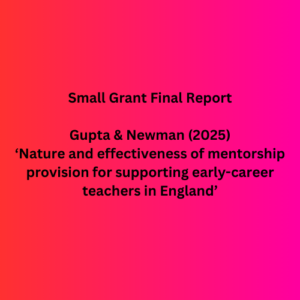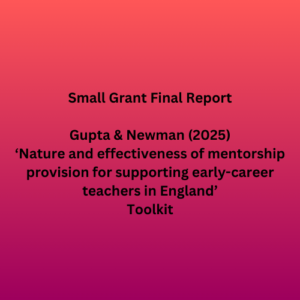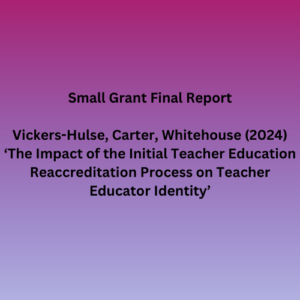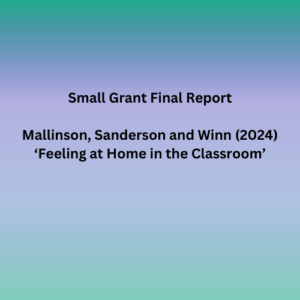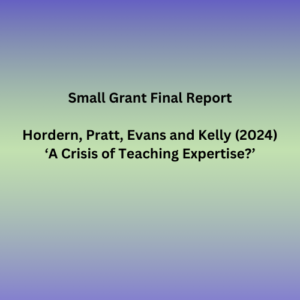Small Grants Scheme 2025
Higher Education: (Re)Shaping the Future
The Society for Educational Studies has encouraged applications under the theme Higher Education: (Re)Shaping the Future. The call is currently closed and decisions will be announced soon.
Application Process
Application forms are available electronically below and here.
Applications failing to adhere to the submission guidelines will not be considered. Applicants should ensure that the bids have appropriate and clear research aims and objectives. These should be realistic given the size of the grants offered through the scheme.
Please note that in relation to costings, the SES is not able to meet full economic costing on account of its charitable status. Non-FEC salary costs of up to a total of 50% of the total award will be considered in relation to an application. This may include payment for research-based activities which can be carried out by any person rather than a specific individual, e.g. when undertaking interviews or preparing transcriptions. The Society will not pay costs for open access publishing.
Applicants are required to provide:
- the names of two academic referees; and
- a letter of support from their educational institution.
Applicants are required to acknowledge the support of the SES in any publications resulting from their research.
Successful awards will be expected to begin on 1st May 2025 and submit an abstract to the Society 2025 Annual Colloquium. Recipients are required to submit a progress report on their research within six months of the award being made. In addition, a final report should be submitted to the Secretary of SES no later than six months after completion. Appropriate publications in academic and / or professional journals will also be expected.
Applications will first be considered by the Society’s Research and Development Sub-Committee, who will, then, make recommendations to the Executive Committee.
Applications cannot be considered for the following expenses:
- Salary costs at full economic costing;
- Supply cover for teachers or other educational workers involved in the project;
- Any administrative overheads charged by educational institutions;
- Equipment such as computers, iPads, digital recorders;
- Conference fees or membership fees;
- Registration, tuition or examination fees for diplomas or degrees;
- Travel, accommodation and registration fees for conferences w
Travel, subsistence and accommodation costs can only be considered for visits to educational institutions or settings directly connected with the research and should be clearly specified and costed.
The decision of the Executive Committee is final and no correspondence will be entered into regarding unsuccessful applications.
Previous Schemes
2024: Religion, Spirituality and Moral Education: informal and formal contexts in dialogue
The Society invested in 2 small grants, awarded to Birmingham City University and University of Warwick. Reports will be available to read below when projects are completed.
2023: Teachers, Teaching and Teacher Education: Trajectories, Threats and Transformations
The Society for Educational Studies invested in 5 small grants on the theme: Teachers, Teaching and Teacher Education: Trajectories, Threats and Transformations. Reports will be available to read below when projects are completed.
Details of previously awarded Small Grants are accessible below.


